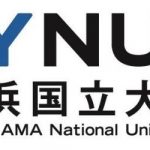Rigetti Computing announces next-generation 40Q and 80Q quantum systems

(HPC.Wire) Rigetti Computing, a pioneer in hybrid quantum-classical computing, today introduced its next-generation “Aspen-M” 80-qubit quantum computer into private beta. Aspen-M is the world’s first commercial multi-chip quantum processor, solving a critical scaling challenge in the race toward fault-tolerant quantum computing. The Aspen-M processor leverages Rigetti’s proprietary multi-chip technology and is assembled from two 40-qubit chips.
In addition, Rigetti announced it is collaborating with Deloitte, a multinational professional services company, and Strangeworks, a leading managed quantum service provider, to explore quantum applications in material simulation, optimization, and machine learning using Rigetti’s new scalable processors.
Separately, a new Aspen system based on a single-chip 40-qubit processor will be released today for general availability on Rigetti Quantum Cloud Services, the Strangeworks Ecosystem, and Amazon Braket.
These latest Rigetti Aspen superconducting processors incorporate improvements in scale, speed, and fidelity—three metrics critical to unlocking broad commercial value. In addition to more than doubling the processor size over its previous generation, the systems powered by these processors deliver a 2.5x speedup in quantum processing times and reduce readout errors by up to 50 percent, drastically improving the reliability of quantum program results.
“With these systems, we’ve reached a critical milestone in the emerging quantum advantage era,” said Chad Rigetti, founder and CEO of Rigetti Computing. “Our machines are now at a scale and speed where they can process the real-world data sets that underpin high-impact applications. We believe these systems give researchers and enterprises the best platform to pursue quantum advantage on real problems.”
In one example using publicly available benchmark data from the New York Stock Exchange, the company performed a machine learning classification task that predicted whether the stock market would close higher or lower the following day. Results on both the 40Q and 80Q systems demonstrated quantum processing capabilities competitive with industry standard classical machine learning models. This example is an early demonstration of Rigetti’s scale advantage, and it sets the stage for addressing problems of even greater computational complexity that remain inaccessible to existing classical computers.
In another early benchmark, the company targeted an optimization problem with 65 variables that was able to run on the Aspen-M system in under 5 minutes. Quantum algorithms of this scale are too large to simulate with classical computers, making Rigetti QCS what we believe to be the most broadly accessible platform for large-scale quantum algorithm development. This type of variational algorithm can be applied to a range of industry use cases including supply chain, logistics, and network optimization.
“As quantum computing continues to advance, organizations should explore the potential of quantum technologies to understand how they can advance their business models in the future,” said Scott Buchholz, quantum computing leader, government and public services chief technology officer, and managing director, Deloitte Consulting LLP. “At Deloitte, we are collaborating with diverse technology providers and our clients to apply our combination of business and technology experience to define, design and engineer a tech-forward future. As part of this joint effort, we are looking forward to exploring Rigetti’s new architecture jointly with Strangeworks to help clients define the right set of questions that will advance their stories.”
Time needed to run combinatorial optimization problems of increasing complexity on Rigetti QPUs compared with commercial quantum simulators. In this early benchmark, a 65Q combinatorial optimization problem is executed in just under 5 minutes on the Aspen-M 80Q processor. In contrast, the time requirement for simulators grows exponentially beyond 32Q, eventually becoming intractable in the regime easily accessible by Aspen-M.
“The scalability and speed of Rigetti’s new processors is impressive and opens the door to new possibilities for quantum application developers and researchers,” said William Hurley, founder and CEO of Strangeworks. “This kind of computing power enables enterprise-sized companies, like Deloitte, to apply quantum computing to problems of real importance. We’re excited to work together with Deloitte and Rigetti to usher in a new era for quantum application development.”



















